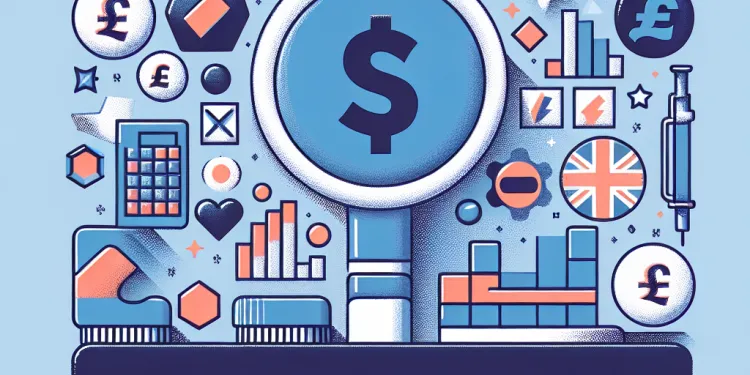
Find Help
More Items From Ergsy search
-
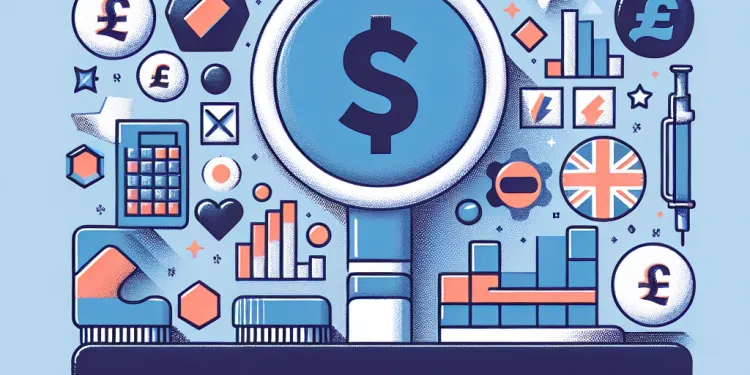
Can HPV be treated?
Relevance: 100%
-
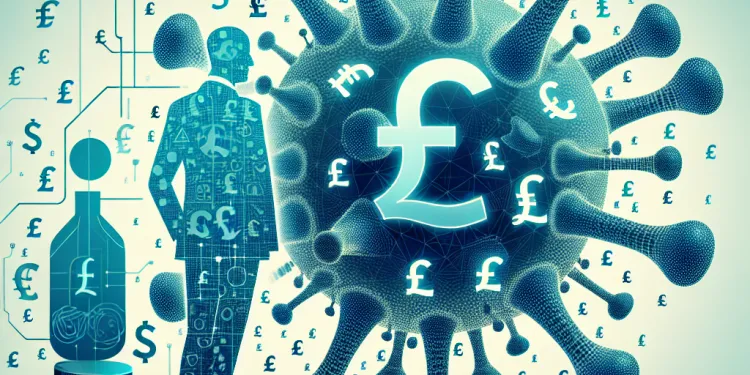
What is the HPV Virus?
Relevance: 74%
-
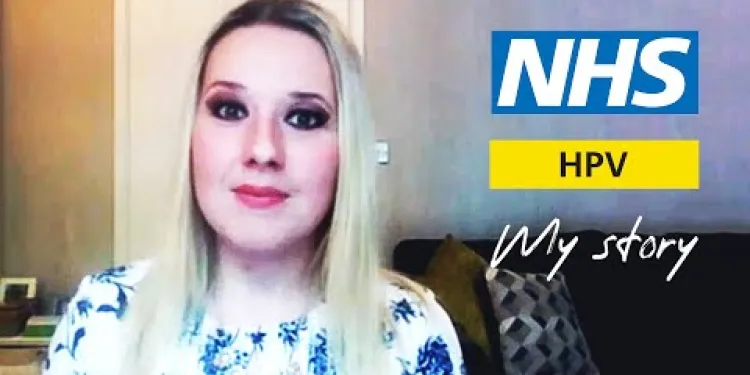
HPV - My Story | NHS
Relevance: 69%
-
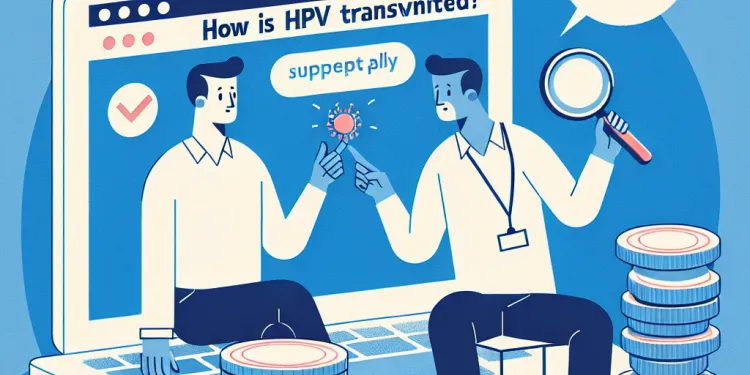
How is HPV transmitted?
Relevance: 69%
-

Are there symptoms of an HPV infection?
Relevance: 68%
-
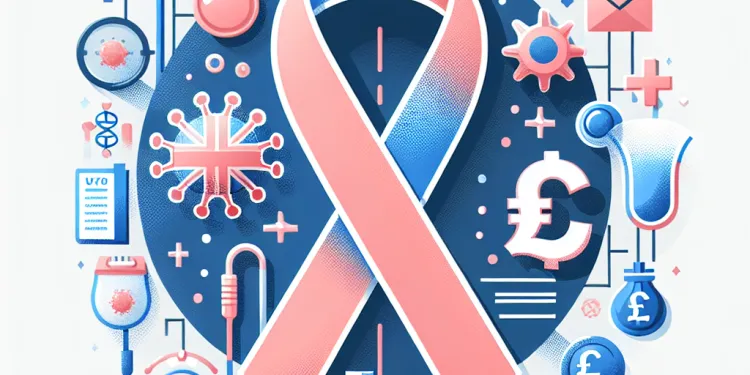
What is the link between HPV and cervical cancer?
Relevance: 67%
-
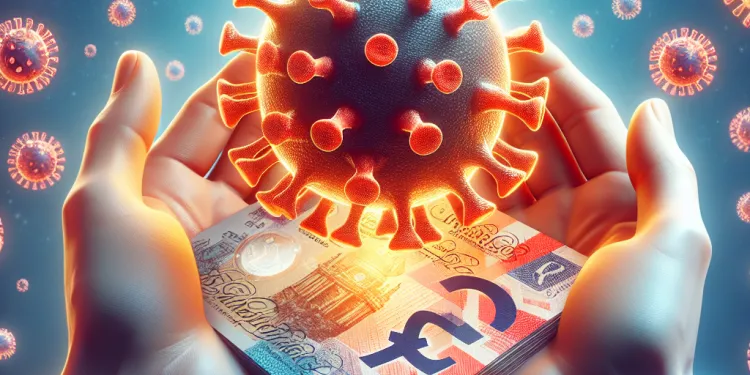
Can HPV lead to cancer?
Relevance: 66%
-
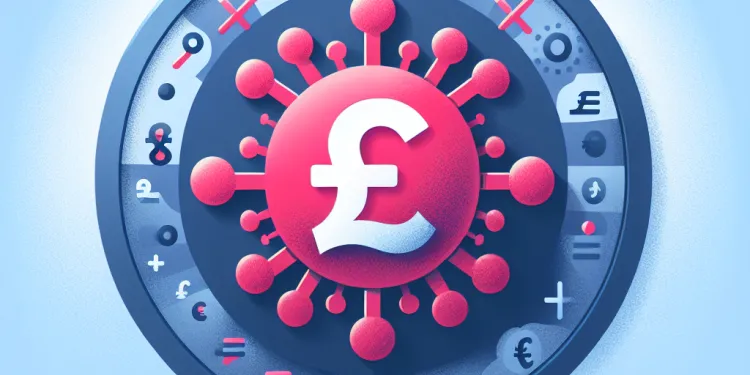
How can HPV be prevented?
Relevance: 66%
-

Is HPV testing available?
Relevance: 65%
-

How common is HPV?
Relevance: 65%
-
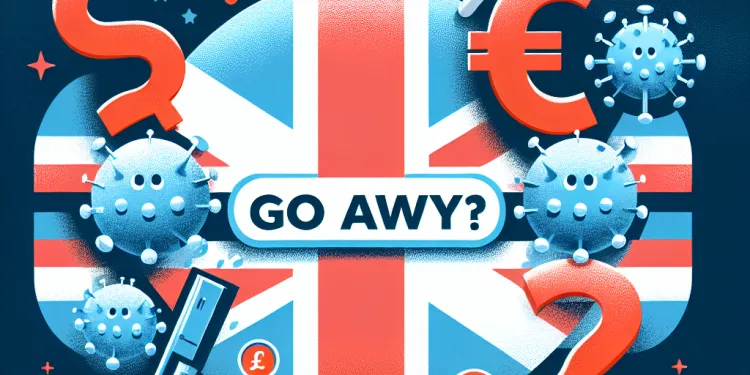
Can HPV go away on its own?
Relevance: 64%
-
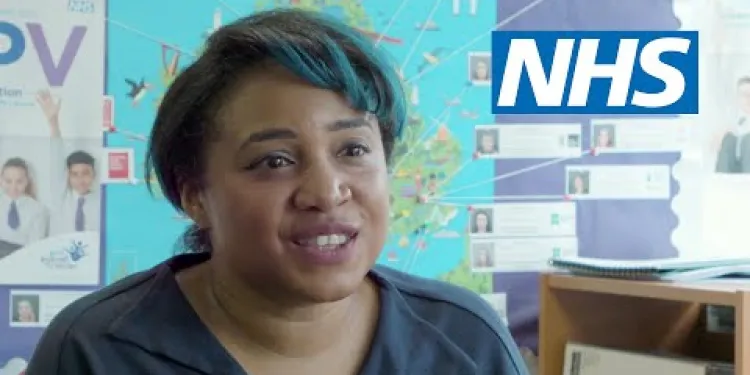
What is the year 8 HPV vaccine? | NHS
Relevance: 64%
-
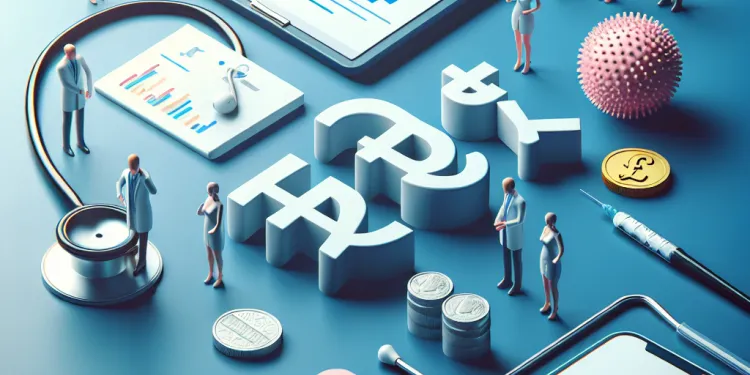
What health problems can HPV cause?
Relevance: 64%
-
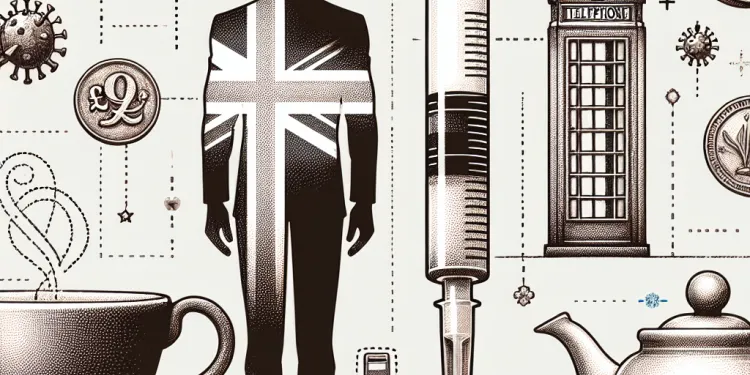
Do men need the HPV vaccine?
Relevance: 64%
-
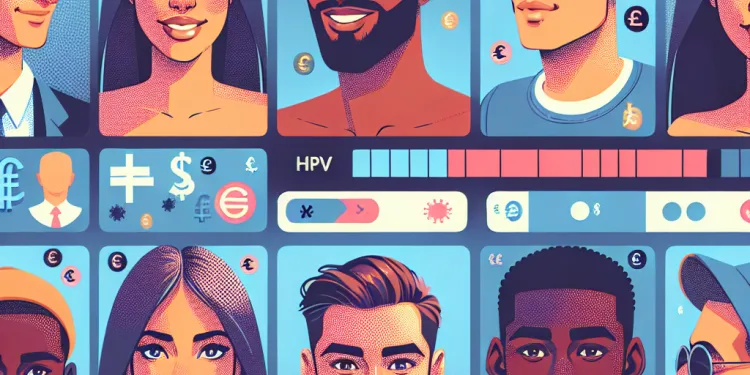
Can HPV affect both men and women?
Relevance: 63%
-
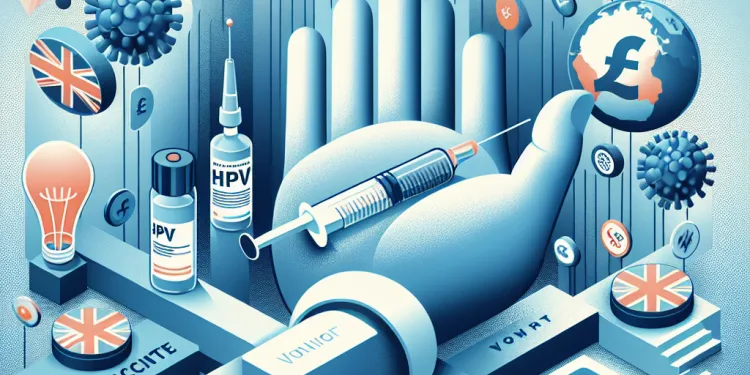
Who should get the HPV vaccine?
Relevance: 63%
-
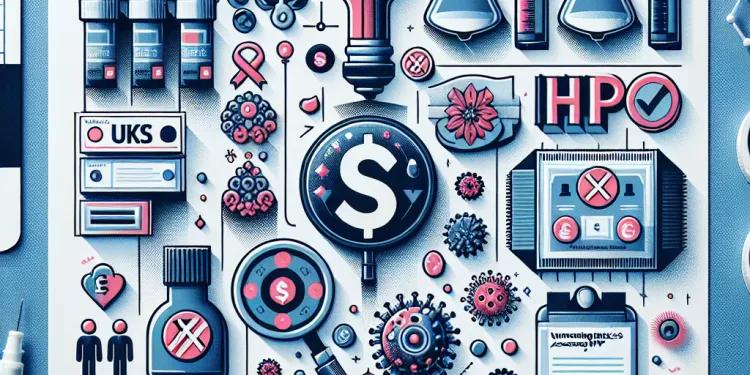
What age group is most at risk for HPV?
Relevance: 58%
-
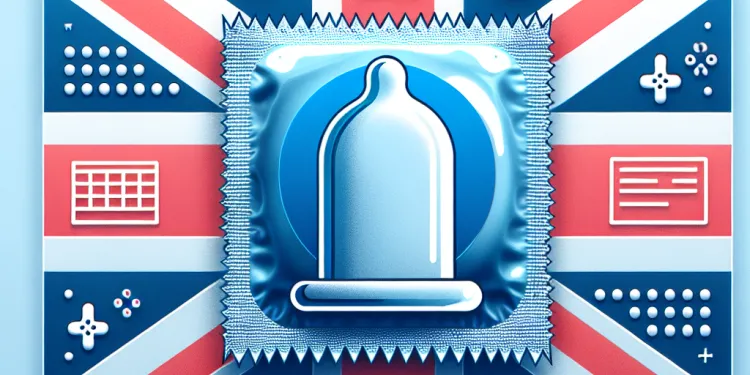
Can using condoms fully protect against HPV?
Relevance: 57%
-

Surge in HPV Vaccination Rates Among Young Women in the UK
Relevance: 56%
-
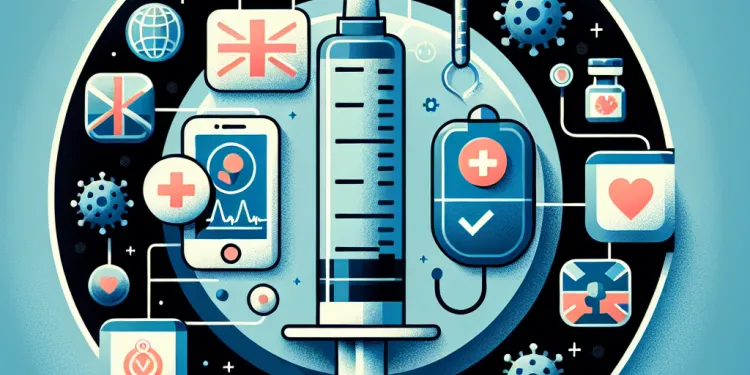
Is there a vaccine for HPV?
Relevance: 51%
-

How many types of HPV are there?
Relevance: 45%
-
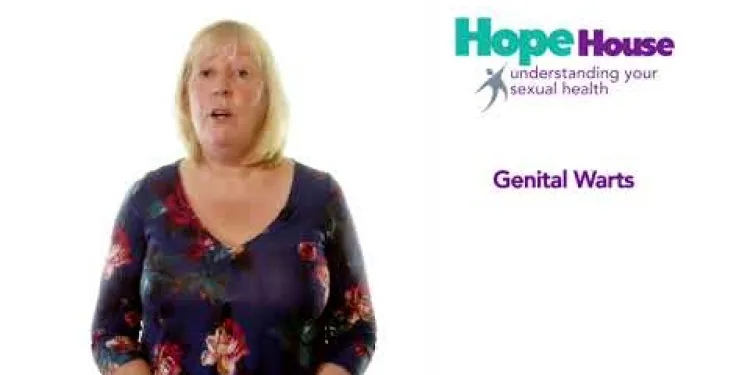
Understanding Your Sexual Health - Genital Warts
Relevance: 37%
-
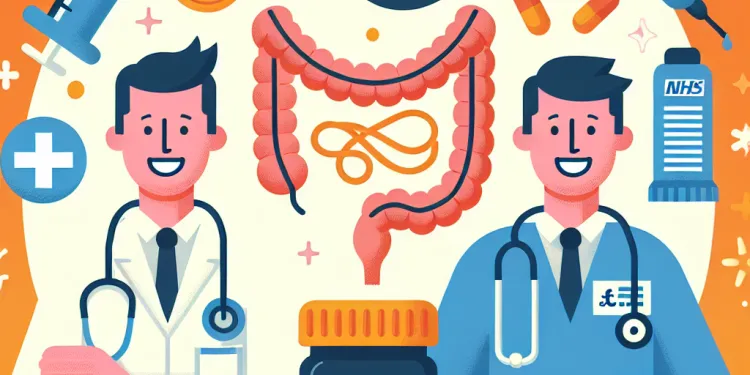
Can appendicitis be treated with antibiotics?
Relevance: 34%
-
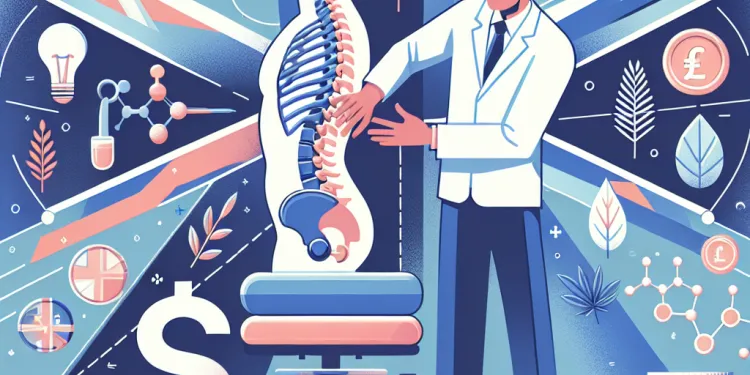
Do chiropractors only treat the spine?
Relevance: 33%
-

Can Lyme disease be treated?
Relevance: 33%
-
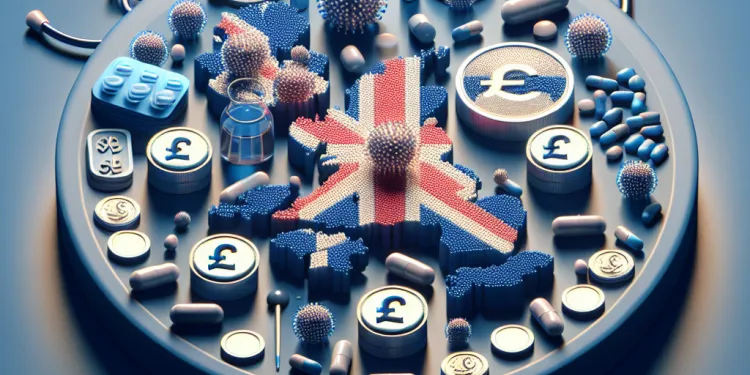
Can antibiotics treat norovirus?
Relevance: 33%
-
Can eating disorders be treated?
Relevance: 33%
-
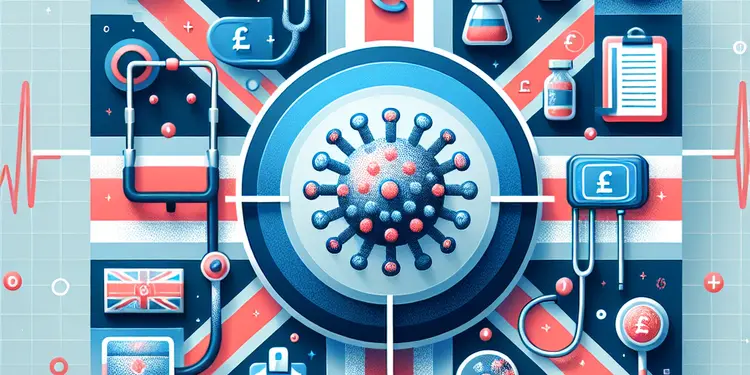
Can measles be treated?
Relevance: 33%
-
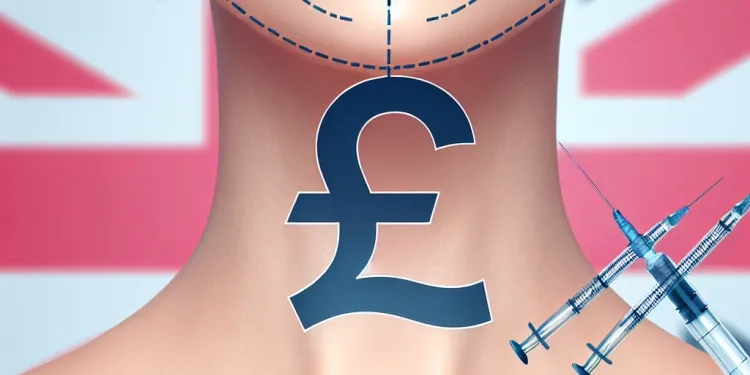
What areas can be treated with Botox?
Relevance: 32%
-
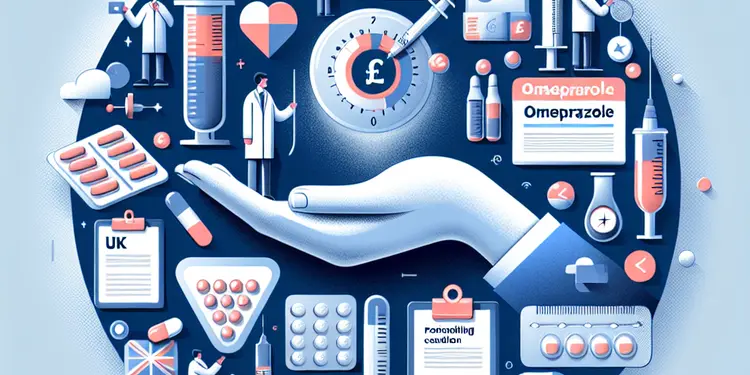
What conditions is Omeprazole used to treat?
Relevance: 32%
-
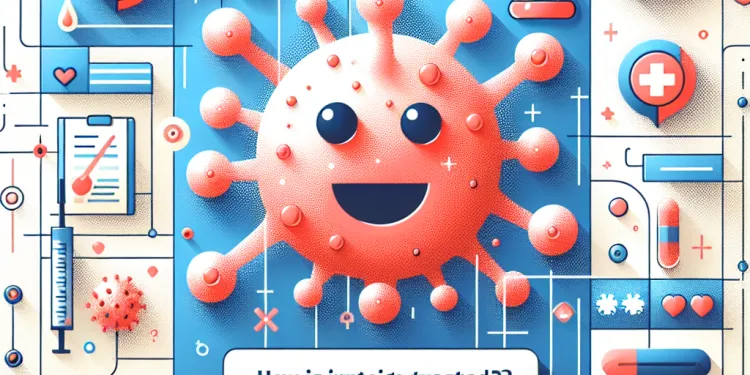
How is impetigo treated?
Relevance: 32%
-

Can methanol poisoning be treated?
Relevance: 32%
-
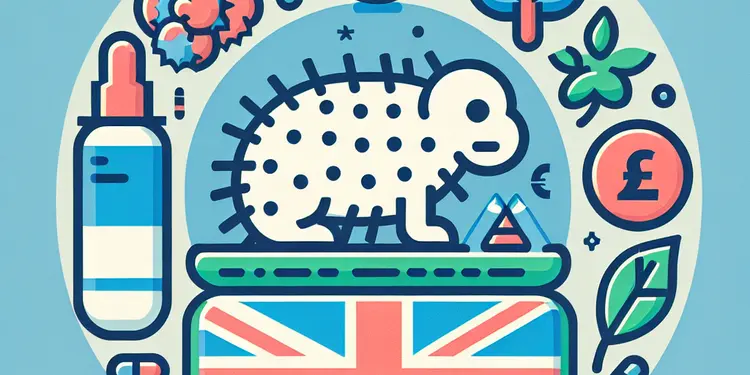
Can scabies be treated over-the-counter?
Relevance: 32%
-
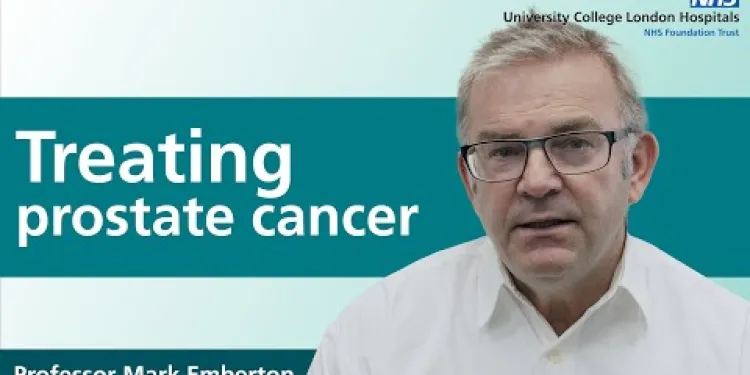
Treating prostate cancer
Relevance: 32%
-
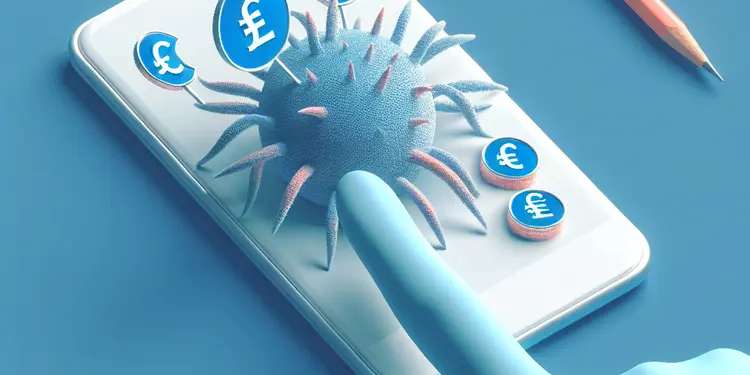
How is scabies treated?
Relevance: 32%
-
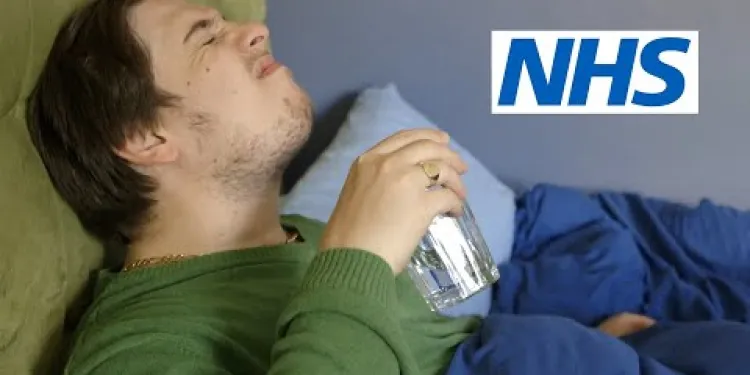
How to treat tonsillitis | NHS
Relevance: 31%
-

Can H3N2 be treated with antiviral medications?
Relevance: 31%
-
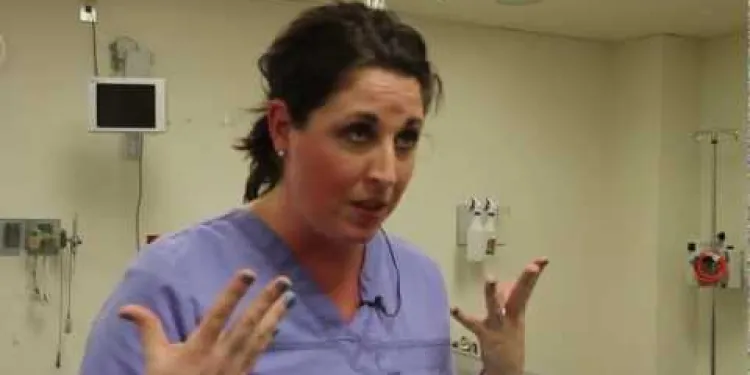
How to treat a scald burn
Relevance: 31%
-
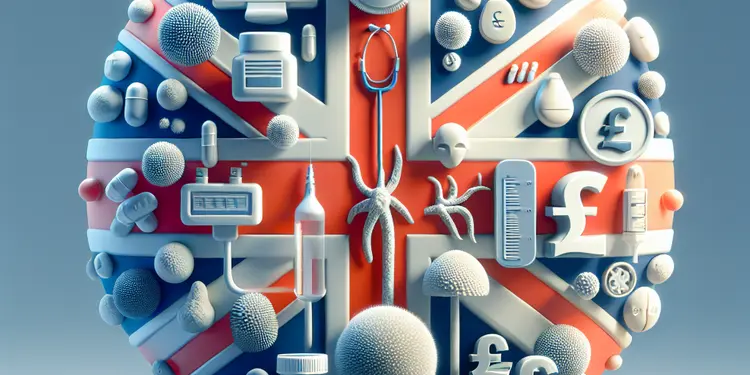
How is fungal meningitis treated?
Relevance: 31%
-
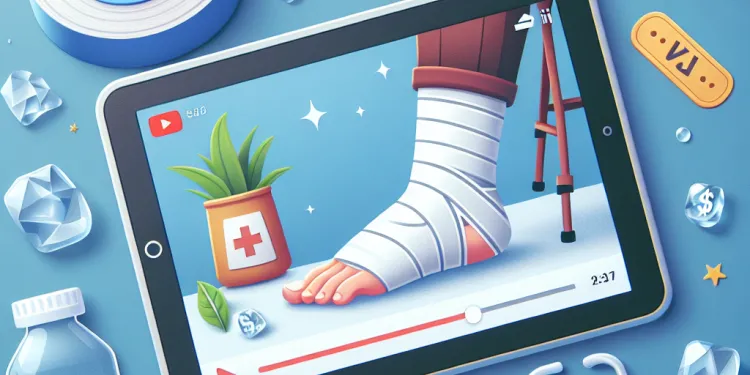
How to treat a sprained ankle
Relevance: 31%
Understanding HPV and Its Treatment
Human Papillomavirus (HPV) is a common virus with numerous strains, some of which can cause health problems such as warts and, in more severe cases, cancers. It is primarily known as a sexually transmitted infection, but not all forms of HPV lead to long-term health issues. In the UK, HPV is a public health focus due to its connection to cervical cancer and other anogenital and oropharyngeal cancers.
Is There a Cure for HPV?
Currently, there is no cure for the virus itself, but the body's immune system often clears HPV naturally within two years. Many people with an HPV infection experience no symptoms and might not even know they have it. As the virus can be asymptomatic, regular screening and monitoring are essential for managing health risks associated with certain high-risk strains.
Treatment Options for HPV Symptoms and Related Health Issues
While the virus itself cannot be treated, health problems caused by HPV can be managed or treated. Genital warts, for example, can be treated with prescription medications, which are applied directly to the affected area. These treatments can reduce symptoms and help remove warts but do not eradicate the virus from the body.
For precancerous changes in the cervix known as cervical dysplasia, which can be detected through routine cervical screening (also known as a smear test), treatment might involve procedures like cryotherapy, laser therapy, or Loop Electrosurgical Excision Procedure (LEEP) to remove or destroy abnormal tissue.
Prevention and Vaccination
Vaccination is the most effective method to prevent certain types of HPV, especially those associated with cervical cancer and other serious health issues. The UK has a national HPV vaccination programme, which is offered to all children in school years 8 and 9, typically around ages 12 to 13. This program has been extended to include boys as well as girls, aiming to reduce the prevalence of HPV-related cancers in the broader population.
The vaccine is most effective when administered before individuals become sexually active, but it can still provide benefits later. It's essential to complete the full course of the vaccine series to ensure maximum protection.
The Role of Regular Screening
Regular cervical screening tests are crucial in the early detection of changes caused by HPV, particularly strains that can lead to cervical cancer. The NHS invites women and people with a cervix aged 25 to 64 for routine cervical screening every three to five years. This helps in identifying abnormal changes early, so they can be monitored or treated promptly to prevent cancer development.
In summary, while HPV itself isn't treatable, the symptoms and complications associated with the virus can be managed effectively. Preventative measures like vaccination and regular screening are vital in reducing its impact.
Understanding HPV and How to Treat It
HPV is a virus. It is common and comes in many types. Some types can cause health problems like warts or cancer. HPV is mostly spread through sex. Not all types cause serious problems. In the UK, HPV is important because it can lead to cervical cancer and other cancers.
Can HPV Be Cured?
There is no cure for HPV, but the body often gets rid of it by itself in two years. Many people with HPV do not feel sick and might not know they have it. Because HPV might not show signs, getting check-ups regularly is important to stay healthy.
How to Treat HPV Symptoms and Health Problems
HPV itself can't be treated, but we can treat the problems it causes. Warts caused by HPV can be treated with medicine you put on the skin. This helps make the warts go away but does not get rid of the virus.
If HPV causes changes in the cervix, it can be found with regular tests called smear tests. Treatments like freezing or using a laser can help by removing or destroying bad cells.
Stopping HPV with Prevention and Vaccination
Getting vaccinated is the best way to stop some types of HPV, especially the ones that can cause cancer. In the UK, children aged 12 to 13 usually get the vaccine in school. Both boys and girls get it to help lower HPV-related cancers in everyone.
The vaccine works best if given before someone is sexually active, but it can still help later. It is important to get all the doses of the vaccine for the best protection.
Why Regular Screening Is Important
Regular screening tests help find changes caused by HPV early, especially the types that can lead to cervical cancer. The NHS asks women and people with a cervix who are 25 to 64 to have these tests every three to five years. This helps catch changes early, so they can be watched or treated to stop cancer.
In summary, while we cannot cure HPV, we can treat the symptoms. Getting vaccinated and having regular tests are very important to lower the risks from HPV.
Frequently Asked Questions
Can HPV be treated?
There is no cure for the virus itself, but HPV-related health problems can be managed.
How is HPV typically managed?
HPV-related conditions, such as genital warts or cervical pre-cancer, can be treated with medication or surgical procedures.
Can the human papillomavirus (HPV) go away on its own?
In many cases, HPV infections are cleared naturally by the immune system within two years.
Is there a vaccine to prevent HPV?
Yes, the HPV vaccine can prevent most cases of cervical cancer and other HPV-related diseases.
Can genital warts from HPV be treated?
Yes, genital warts can be treated with prescription medications or procedures like freezing or laser therapy.
Does the HPV vaccine treat existing infections?
No, the HPV vaccine does not treat existing infections; it is meant to prevent new infections.
How effective is the HPV vaccine?
The HPV vaccine is highly effective in preventing infections by the types of HPV it targets, especially when given before exposure to the virus.
Are there treatments for HPV-related cancers?
Yes, HPV-related cancers such as cervical cancer can be treated with surgery, radiation, and chemotherapy, depending on the stage of the cancer.
Can HPV cause any symptoms?
HPV often does not cause any symptoms, but it can lead to warts or precancerous lesions.
Is it possible to have HPV without knowing it?
Yes, many people with HPV do not know they have it because it often causes no symptoms.
Can men be treated for HPV?
While there is no treatment for the virus itself, men can be treated for genital warts and other complications caused by HPV.
Is regular screening important for managing HPV?
Yes, regular cervical screenings (Pap tests) are crucial for detecting and managing changes caused by HPV before they develop into cancer.
Can HPV affect pregnancy?
HPV usually does not affect pregnancy, but it can sometimes cause complications. Consult a healthcare provider for advice.
Can lifestyle changes help manage HPV?
Maintaining a healthy lifestyle can support the immune system in clearing HPV, but it is not a treatment for the virus.
Why is it important to get the HPV vaccine?
The HPV vaccine significantly reduces the risk of developing several types of cancers caused by HPV.
Can HPV infections recur after treatment?
Yes, HPV can persist or recur, and visible symptoms like warts can return even after treatment.
Can HPV be transmitted even if there are no symptoms?
Yes, HPV can be transmitted to others even when the infected person has no symptoms.
What should I do if I test positive for HPV?
Follow up with your healthcare provider for appropriate monitoring and management based on your specific situation.
Does using condoms completely protect against HPV?
Condoms reduce the risk of HPV transmission but do not completely prevent it because HPV can infect areas not covered by a condom.
Is there ongoing research for HPV treatments?
Yes, research is ongoing to find more effective treatments and preventive measures for HPV.
Can HPV be treated?
HPV is a virus that can cause warts or other health problems. There is no cure for HPV itself, but the health problems it causes can be treated. If you have questions or worries, talk to a doctor.
Here are some things that can help:
- See a doctor for advice.
- Use picture books or videos to learn more.
- Ask someone you trust to help explain things.
There is no way to make the virus go away, but doctors can help with health problems caused by HPV.
How do doctors usually treat HPV?
Doctors help people with HPV in different ways. HPV often goes away by itself. But doctors can check if it's still there. They can also help if HPV causes other health problems.
Here are some ways to manage HPV:
- Get regular check-ups: Going to the doctor regularly is important. The doctor can see if there are any changes that need attention.
- Vaccination: There is a vaccine for HPV. It helps protect against some types of the virus.
- Healthy habits: Eating well and taking care of your body can help your immune system.
If you need help understanding more, you can ask a doctor or use apps that make reading easier. It's okay to ask questions!
HPV can cause problems like bumps on the skin called genital warts, or changes in the body that might turn into cancer later. Doctors can help by giving medicine or doing surgery to fix these problems.
Can HPV Go Away By Itself?
HPV is a common virus. Most of the time, your body can fight it off by itself. It might go away without you doing anything.
If you need help to understand, you can:
- Ask a doctor or nurse to explain.
- Look at pictures or videos about HPV.
- Talk to someone you trust.
Most of the time, the body can get rid of HPV on its own in two years.
Is there a vaccine for HPV?
Yes, the HPV shot helps stop most cases of cervical cancer and other sicknesses caused by HPV.
Can warts from HPV be treated?
Yes, doctors can help get rid of genital warts. They can give medicine or use special treatments like freezing or laser to remove them.
Does the HPV vaccine help if you are already infected?
No, the HPV shot cannot get rid of infections you already have. It helps stop new infections from happening.
How well does the HPV vaccine work?
The HPV vaccine helps stop people from getting the HPV virus.
The vaccine is very good at protecting you. It can help stop virus infections. This keeps you safe from some illnesses, like cancer.
If you need help, you can ask a doctor or nurse to explain. They can give you more information.
Drawing pictures or using apps to learn about health can also help you understand better.
The HPV vaccine works really well. It stops you from getting certain types of the HPV virus. It works best if you get the vaccine before you come into contact with the virus.
Can doctors treat cancers caused by HPV?
Yes, doctors can help people with cancers caused by HPV.
They use different ways to treat these cancers:
- Surgery: Doctors can remove the cancer.
- Radiotherapy: Powerful rays can kill cancer cells.
- Chemotherapy: Special medicine can help stop cancer.
It is important to see a doctor if you worry about cancer.
Tools to help:
- Bring a family member or friend to the doctor with you.
- Ask the doctor to use simple words.
- Take notes or ask for information in writing.
Yes, cancers caused by HPV, like cervical cancer, can be treated. Doctors can use surgery, strong x-rays called radiation, or medicine called chemotherapy. The type of treatment depends on how much the cancer has spread.
Can HPV make you feel sick?
HPV is a kind of virus. Most of the time, it doesn't make you feel sick. But sometimes, it can cause little bumps called warts, or it can make body parts change in a way that might lead to cancer later.
Can you have HPV without knowing?
Yes, it is possible to have HPV without knowing. HPV is a virus. Some people have HPV and feel fine. They might not know they have it.
Here are some tips to help you understand:
- Ask a doctor: If you have questions, you can ask a doctor.
- Look online: Websites like KidsHealth can help explain things.
- Talk to someone you trust: A family member or friend can also help.
Yes, a lot of people with HPV do not know they have it because it usually does not make them feel sick.
Can men get help for HPV?
HPV is a virus that can affect men and women. Men can see a doctor to get help if they have problems because of HPV.
If a man has HPV, the doctor can help with:
- Treating any skin bumps or warts.
- Checking for other health problems caused by HPV.
It is a good idea for men to see a doctor if they think they might have HPV. The doctor can tell them what to do next.
If reading is hard, try:
- Reading out loud.
- Using text-to-speech tools.
There is no cure for the virus. But doctors can help men with warts and other problems caused by the virus.
Is it important to have regular checks for HPV?
It is good to have regular health check-ups. These check-ups help find HPV early. If you know early, you can take care of your health better.
Ask a doctor about when to get check-ups. A calendar or a phone reminder can help you remember your check-up dates.
Yes, having regular cervical screenings (also called Pap tests) is very important. These tests help find and deal with changes caused by HPV before they turn into cancer.
Can HPV affect having a baby?
HPV is a virus that can make skin lumps called warts. Some types can make women sick. If a woman is going to have a baby, HPV usually does not hurt the baby. But sometimes, it can cause problems.
What to do:
- If pregnant, tell the doctor about HPV.
- The doctor may watch you more closely.
- Testing and treatments may help.
To know more or help, use tools like audio books or ask someone to explain it to you. You can also find easy videos online.
HPV usually does not cause problems with having a baby, but sometimes it can. Talk to a doctor for help.
Can changing how you live help with HPV?
HPV is a virus that some people can get. It's important to know if changing things like what you eat, how much you exercise, and other habits can help with it. These are called lifestyle changes.
Think about:
- Eating Healthy: Try eating more fruits and veggies. They are good for your body and help you stay strong.
- Exercising: Moving your body by playing, walking, or dancing helps keep you fit.
- Resting Enough: Getting enough sleep at night helps your body heal and stay strong.
- Not Smoking: Smoking is not good for you. It's better for your health if you stop.
These things can help your health, but always talk to a doctor or a health worker. They can give you good advice on how to deal with HPV.
Staying healthy can help your body fight off HPV, but it won't cure the virus.
Why should you get the HPV shot?
The HPV shot helps keep you healthy. It stops you from getting sick from the HPV virus.
HPV can cause problems like warts and even cancer. Getting the shot keeps you safer.
Ask a doctor or nurse about the HPV shot. They can help you and tell you more.
You can also use pictures, stories, or videos to learn more.
The HPV vaccine helps keep you safe from some types of cancer. These cancers are caused by a virus called HPV.
Can HPV come back after treatment?
HPV is a virus that can cause warts. Even after treatment, HPV might come back. It's important to visit the doctor for check-ups.
Having a strong immune system helps. Eating healthy foods, exercising, and getting enough sleep can help keep your body strong.
Using reminder tools, like setting a calendar alert, can help you remember to go for doctor visits. It's also good to talk to someone if you have questions or feel worried.
Yes, HPV can come back. The signs, like warts, might show up again even if you had treatment.
Can you get HPV if the person doesn't look sick?
Yes, you can get HPV even if you can't see any signs. It's important to be careful and protect yourself.
You can use tools like pictures or videos to help you understand better. Talking to a doctor can also help.
Yes, you can give someone else HPV even if you do not feel sick or have signs.
What should I do if I have HPV?
If you find out you have HPV, here are some simple steps:
- Stay calm. Many people have HPV.
- Talk to your doctor. They can give you advice.
- Follow your doctor’s instructions. They may suggest more tests.
- Keep healthy. Eat well and rest.
If you need help, ask a friend or family member. They can make it easier to understand.
Talk to your doctor so they can help you and check how you're doing. They will know what plan is best for you.
Do condoms stop all HPV?
Condoms help stop the spread of HPV, but they do not stop it completely. HPV can be on skin that condoms do not cover. Wearing condoms is still a good idea because they help protect against many germs. Talking to a doctor or nurse can help answer questions and offer advice.
Condoms can help stop the spread of HPV, but they don't stop it completely. This is because HPV can still get to places that the condom doesn't cover.
Are people studying new ways to treat HPV?
Scientists are working to find new ways to help people with HPV. They want to make better medicines.
Here are some tools that might help you understand it better:
- Use pictures to help explain the words.
- Ask someone to read with you.
- Break the information into small parts.
Yes, people are working hard to find better ways to treat and stop HPV.
Useful Links
Have you found an error, or do you have a link or some information you would like to share? Please let us know using the form below.
-->
This website offers general information and is not a substitute for professional advice.
Always seek guidance from qualified professionals.
If you have any medical concerns or need urgent help, contact a healthcare professional or emergency services immediately.
Some of this content was generated with AI assistance. We’ve done our best to keep it accurate, helpful, and human-friendly.
- Ergsy carfully checks the information in the videos we provide here.
- Videos shown by Youtube after a video has completed, have NOT been reviewed by ERGSY.
- To view, click the arrow in centre of video.
- Most of the videos you find here will have subtitles and/or closed captions available.
- You may need to turn these on, and choose your preferred language.
- Go to the video you'd like to watch.
- If closed captions (CC) are available, settings will be visible on the bottom right of the video player.
- To turn on Captions, click settings .
- To turn off Captions, click settings again.
More Items From Ergsy search
-

Can HPV be treated?
Relevance: 100%
-

What is the HPV Virus?
Relevance: 74%
-

HPV - My Story | NHS
Relevance: 69%
-

How is HPV transmitted?
Relevance: 69%
-

Are there symptoms of an HPV infection?
Relevance: 68%
-

What is the link between HPV and cervical cancer?
Relevance: 67%
-

Can HPV lead to cancer?
Relevance: 66%
-

How can HPV be prevented?
Relevance: 66%
-

Is HPV testing available?
Relevance: 65%
-

How common is HPV?
Relevance: 65%
-

Can HPV go away on its own?
Relevance: 64%
-

What is the year 8 HPV vaccine? | NHS
Relevance: 64%
-

What health problems can HPV cause?
Relevance: 64%
-

Do men need the HPV vaccine?
Relevance: 64%
-

Can HPV affect both men and women?
Relevance: 63%
-

Who should get the HPV vaccine?
Relevance: 63%
-

What age group is most at risk for HPV?
Relevance: 58%
-

Can using condoms fully protect against HPV?
Relevance: 57%
-

Surge in HPV Vaccination Rates Among Young Women in the UK
Relevance: 56%
-

Is there a vaccine for HPV?
Relevance: 51%
-

How many types of HPV are there?
Relevance: 45%
-

Understanding Your Sexual Health - Genital Warts
Relevance: 37%
-

Can appendicitis be treated with antibiotics?
Relevance: 34%
-

Do chiropractors only treat the spine?
Relevance: 33%
-

Can Lyme disease be treated?
Relevance: 33%
-

Can antibiotics treat norovirus?
Relevance: 33%
-
Can eating disorders be treated?
Relevance: 33%
-

Can measles be treated?
Relevance: 33%
-

What areas can be treated with Botox?
Relevance: 32%
-

What conditions is Omeprazole used to treat?
Relevance: 32%
-

How is impetigo treated?
Relevance: 32%
-

Can methanol poisoning be treated?
Relevance: 32%
-

Can scabies be treated over-the-counter?
Relevance: 32%
-

Treating prostate cancer
Relevance: 32%
-

How is scabies treated?
Relevance: 32%
-

How to treat tonsillitis | NHS
Relevance: 31%
-

Can H3N2 be treated with antiviral medications?
Relevance: 31%
-

How to treat a scald burn
Relevance: 31%
-

How is fungal meningitis treated?
Relevance: 31%
-

How to treat a sprained ankle
Relevance: 31%


